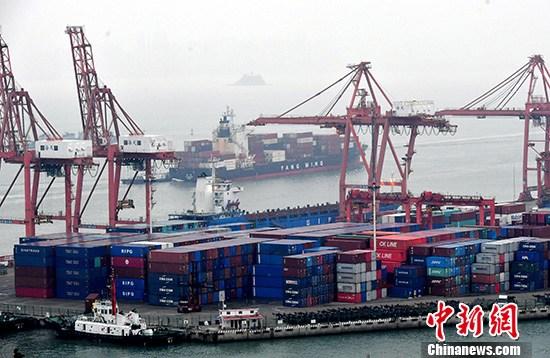Experts upbeat on Chinese economy's growth potential
China's economy shows growth potential that could be further unlocked through planned reform measures, experts said at a London forum on Thursday.
Analysts shared their insights at an event hosted by Asia House as the London-based think tank released its annual outlook report on Asia's economic prospects for 2025.
In his keynote speech, China's Ambassador to the UK Zheng Zeguang said China made steady economic progress in 2024 and achieved solid gains in high-quality development, citing recent data to counter critics who have attempted to "talk China down".
"China's GDP is expected to exceed 130 trillion yuan ($18 trillion) in 2024 and the annual growth rate is forecast to be around 5 percent. China remains the biggest engine driving the world economy," he said.
New quality productive forces, a term championed by Chinese policymakers to describe next-generation industries and advanced manufacturing, including new energy vehicles, integrated circuits, artificial intelligence, and quantum communications, continue to emerge, Zheng said.
Foreign trade hit a record high, Zheng noted, as total goods imports and exports reached 43.8 trillion yuan, which is a 5 percent year-on-year increase, while services trade surged to 6.7 trillion yuan in the first 11 months of 2024, up 14.2 percent.
As a result of further easing market access and lifting restrictions, 52,000 foreign-funded enterprises were newly established, and about 750 billion yuan of foreign investment was attracted in the first 11 months of 2024, Zheng said.
"These above achievements have once again exceeded outside forecasts and proved some people in the West wrong," he said.
"We should never underestimate the challenges and headwinds," the ambassador added when projecting into 2025, while he also pointed out that China will "redouble its efforts" in maintaining its economy on an upward trajectory.
"The key phrases will be proactive fiscal policy and moderately easy monetary policy," he said.
In line with the focus of the Central Economic Work Conference held in December in Beijing, Zheng also said China will "vigorously" boost consumption, unlock domestic demand "on all fronts", give full play to economic system reform, and ensure "landmark reform measures" are effectively carried out.
Jin Keyu, a Chinese economist and professor at the Hong Kong University of Science and Technology, while admitting that challenges confront China's economic transition, said she disagreed with equating the situation to the so-called "peak China" or "China collapse" theory, as there is still untapped potential.
"Again, repeatedly, (it might be) the sixth edition of the ‘China collapse' theory in the last 40 years, given that China has grown so miraculously. I think it is a wrong way to look at China. The potential is there and it's far from reaching its potential," she said, highlighting that total factor productivity, tertiary education, service sector, domestic consumption share, social welfare system, and many other areas all indicate room for improvement.
For 2025, she forecasted a "moderate rebound", contingent on the timeframe required to complete structural reforms and the impact of stimulus packages in injecting confidence into the economy.
Gerard Lyons, a British economist and senior independent director at the Bank of China (UK), echoed that opportunities lie ahead for China's economy. "There is often disconnect between external views and what is happening within China, in the sense that expectations about the economy in China last year are probably more cautious globally than they needed to be," he told China Daily.
To navigate the challenges, Lyons suggested diversifying China's export markets and further driving domestic demand through timely, temporary fiscal measures and unconventional monetary policies.
"In terms of macroeconomic policy, the key issue is to give a boost to domestic demands…Those developments have been touched on by the Central Economic Work Conference in December and the third plenum (The third plenary session of the 20th Communist Party of China Central Committee), but they take time to feed through," he said.
"So, it comes back to more timely, temporary and targeted fiscal measures aimed at the sectors that need the help, whether they are vulnerable or just need to be given an encouragement. For instance, consumer trade-in schemes and tax incentives. The unconventional monetary policy is probably a consideration as well, in terms of the central bank buying debt and easing interest rates."

